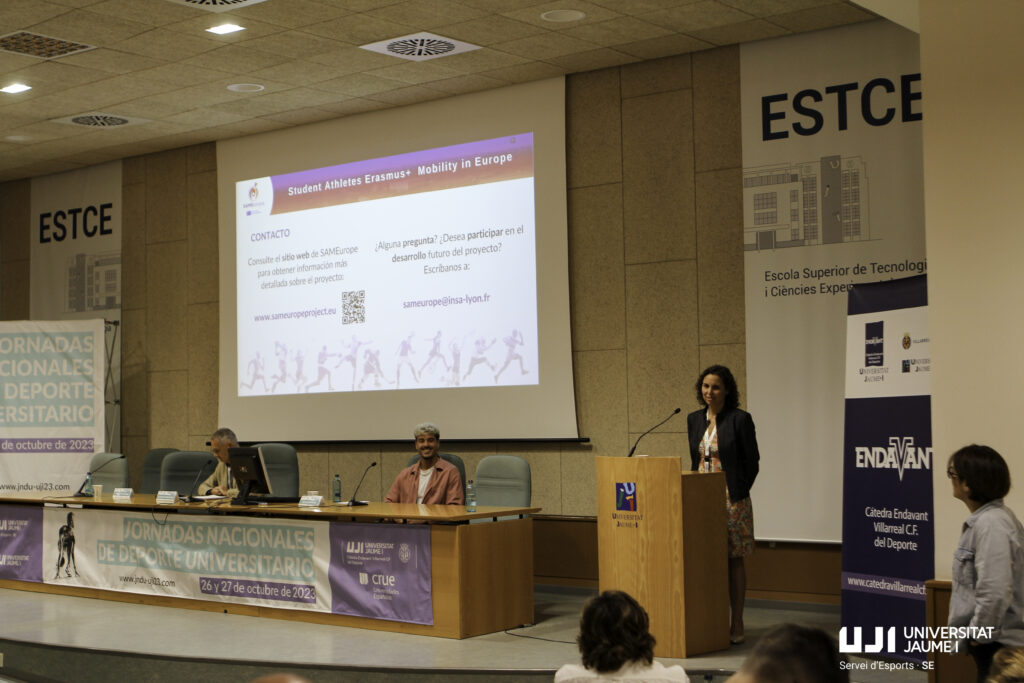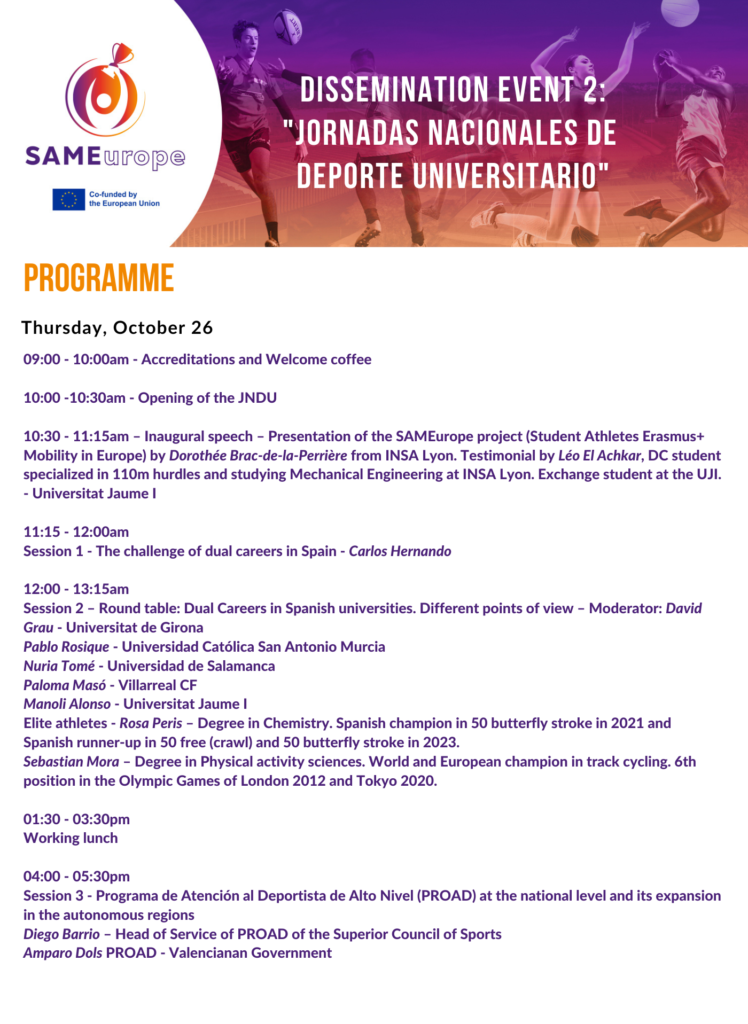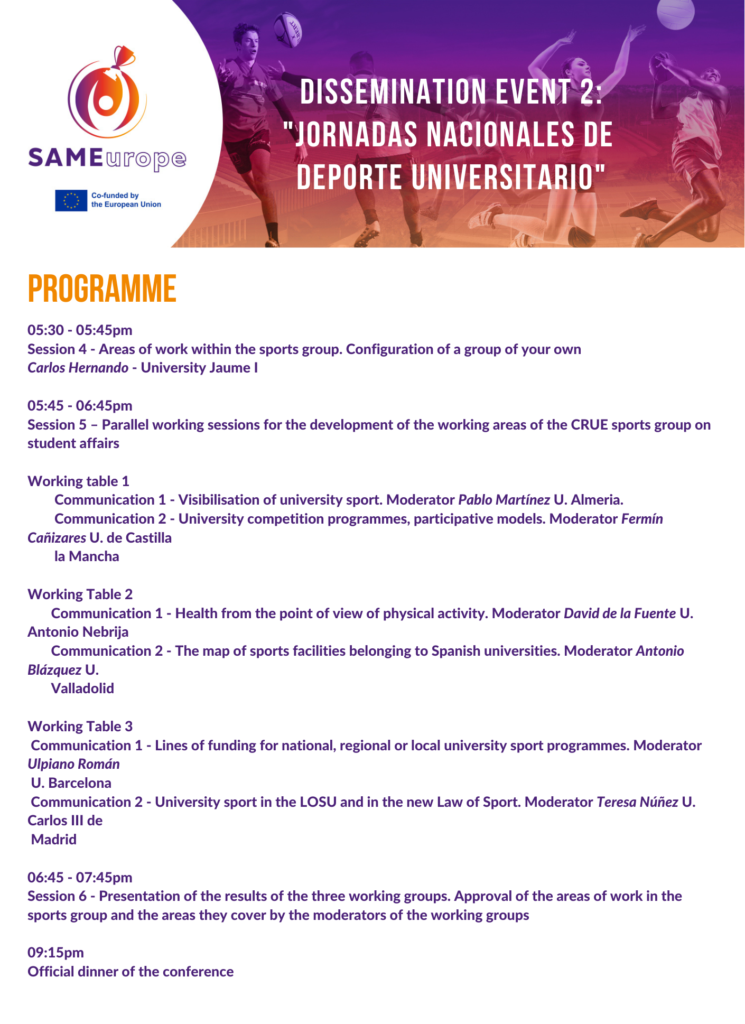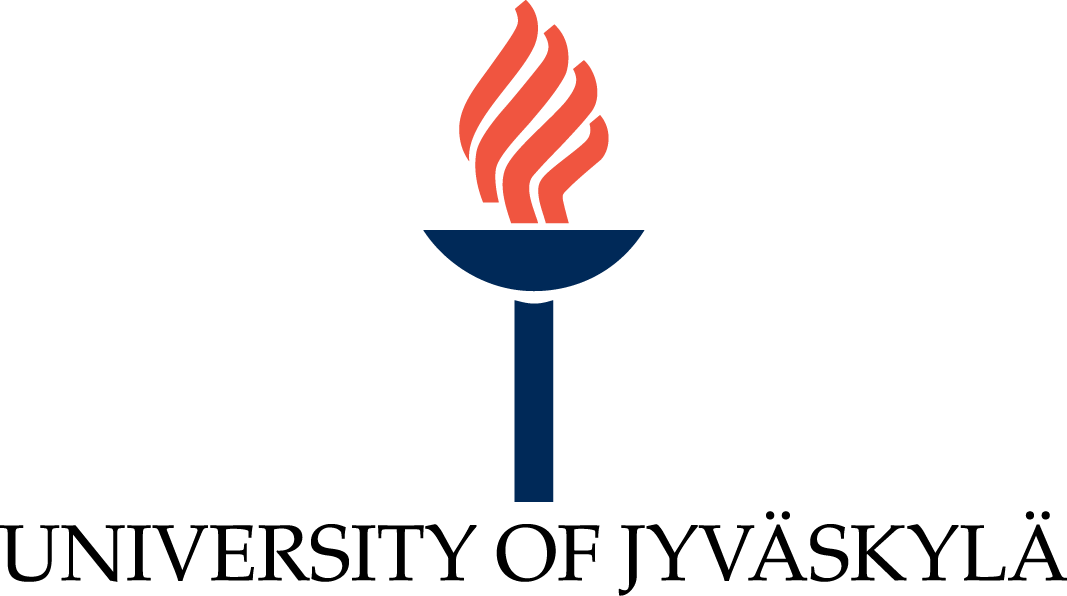On October 26th and 27th, the Universitat Jaume I (UJI) hosted the Jornadas Nacionales de Deporte Universitario (JNDU)
The event is held every year in a Spanish university as part of the Conferencia de Rectores de las Universidades Españolas (CRUE). The aim of the conference is to bring together university sportspersonnel from all over Spain to discuss the challenges and ideas related to sport in HigherEducation Institutions (HEI).
This year, 122 participants attended the event which focused on dual career (DC) students and how they fit into Spanish and European universities, as well as the different ways in which dual careers directly impact the institutions that make up this enriching network. The JNDU put the SAMEurope project in the spotlight, as Dorothée Brac de la Perrière, coordinator of the project atINSA Lyon, opened the event with a presentation of SAMEurope, which sparked questions and great interest from the audience.

The presentation focused on the importance of the mobility of DC students, as well as the keyrole that sport plays in the Erasmus+ guidelines, and presented the different tools available to DC students and their universities to facilitate their mobility. This was followed by the testimonial of a student from INSA Lyon, Léo El Achkar, who, after completing an Erasmus+ mobility at theUniversitat Jaume I, had the opportunity to stay in Spain to continue his athletics training while making special arrangements for his curriculum. This testimonial was a great way to show the impact of the project and how it can more concretely serve DC students’ mobility project. In fact, Léo’s testimonial is the perfect example of the changes already visible thanks to SAMEurope! He even underlined how important he considers the project to support students like him, for whom an international mobility is equally as important and rewarding.
After the opening session, Carlos Hernando – University Lecturer and Director of the Sports Service at the UJI, and active member of the SAMEurope consortium – gave a presentation on the dual career environment in Spanish universities. This was an opportunity for the audience to understand more concretely the impact of dual careers have in universities and what needs to be implemented to support DC students. Carlos Hernando based his analysis on the one that WP3 conducted among the 5 consortium members of SAMEurope. He explained the methodology of the WP3 analysis and how he extended it to the national context, among 38 Spanish universities and more than 400 students. The results and this work showed the importance of the DC network and the support that we, as European HEIs, need to provide to our student athletes.
This event was a great opportunity to disseminate the project among Sports Staff – who are oneof the main targets of the project – and to spread the network of DC universities amongEuropean and Spanish institutions.







